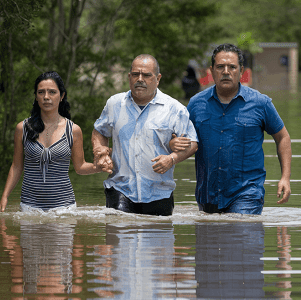A recent study published in the American Journal of Public Health reveals that natural disasters in the United States are having a disproportionate impact on vulnerable populations, exacerbating existing health disparities. The research, conducted by Ther W. Aung and Ashwini R. Sehgal from Case Western Reserve University, analyzed data from the Census Bureau Household Pulse Survey between December 2022 and September 2023.
The study found that approximately 3.17 million adults, or 1.5% of the U.S. adult population, reported being displaced from their homes due to natural disasters in the past year. Notably, people of color, sexual and gender minority populations, and individuals with lower incomes, disabilities, or unfavorable social determinants of health were more likely to experience displacement.
The impacts of these disasters extended beyond displacement. Food and water shortages, loss of electricity, unsanitary conditions, feelings of isolation, and vulnerability to scams were more prevalent among people of color and those with lower education or income levels.
Fires were identified as particularly problematic, resulting in more long-term displacements compared to other types of natural disasters.
The researchers emphasize the need to address social determinants of health and other vulnerability factors to improve disaster preparedness and mitigate post-disaster impacts. This study underscores the importance of targeted interventions and policies to protect and support communities most at risk during natural disasters.
As climate change continues to increase the frequency and severity of natural disasters, these findings highlight the urgent need for equitable disaster response and recovery efforts to prevent further widening of health disparities in the United States.



